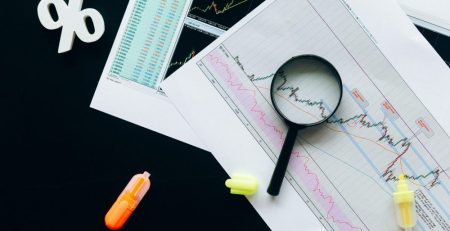The trends that will shape the external audit in the future
The auditing profession has been tested by tumultuous challenges, especially due to the advancement of technology. This process has reshaped the external audit landscape, imposing the need for rapid adaptation to new technological tools and paradigms in order to maintain the relevance and quality of the services offered.
Artificial intelligence and automation have accelerated data analysis and anomaly detection processes, reducing errors and creating increased efficiency. The use of predictive analytics and machine learning models has improved the ability to anticipate risks and provide accurate recommendations for improving control procedures.
Blockchain technologies have provided a more transparent and secure system for verifying financial transactions. In essence, external auditing has evolved to a more agile, data- and technology-driven approach that promotes trust and integrity in financial reporting.
Therefore, the purpose of this article is to explore the main trends that will shape the external audit field and to highlight the need for auditors to develop new skills.
Technological transformations
Artificial Intelligence (AI)
The integration of artificial intelligence and machine learning has brought significant improvements to audit processes. However, the next frontier is related to the development of Large Language Models (LLM) trained on industry-specific data. This stage is expected to bring major changes, speeding up audits, making them more efficient and increasing the added value for clients. The increasing attractiveness of the industry for young professionals confirms the positive impact of these emerging technologies.
Robotic Process Automation
Automating routine tasks relieves auditors of tedious responsibilities and allows them to focus on higher value activities. This transition of audit professionals to strategic decision-making and complex problem-solving increases the attractiveness of the profession, attracts candidates and increases the overall value of audit services. Robotic Process Automation not only improves the efficiency and accuracy of the external audit process, but transforms the work environment from profile companies to a dynamic and stimulating one.
Blockchain technology
The transparent and decentralized system of blockchain technology is poised to revolutionize the auditing process. By recording every transaction in an immutable way, external auditors obtain a unique and untamperable ledger, facilitating effective verification of the accuracy and integrity of financial statements. The decentralized nature of blockchain improves data reliability, simplifies audits, reduces the risk of fraud and strengthens confidence in financial reporting.
Advanced data analysis
Advanced data analytics, including predictive analytics, play an important role in external auditing. Auditors use these advanced analytics tools to assess risk, identify material errors, and extract insights from both structured and unstructured data. By using this information auditors can be more strategic about the area of focus for each client, consistently adding value for clients and their companies.
ESG audits
With the demand from stakeholders for transparency in business practices, who advocate for sustainability and responsibility, ESG (Environmental, Social, Governance) audits have gained in importance. Auditors assess the environmental impact, social responsibility initiatives and governance structures of companies, positioning themselves as trusted third parties in building a system that all stakeholders can rely on. This approach encourages organizations to adopt sustainable and ethical practices in the way they operate, strengthening relationships with investors, customers and communities.
Remote auditing
The pandemic has accelerated the adoption of remote auditing. Auditors are now using virtual tools for audits, overcoming geographical barriers and conducting remote audits effectively. While physical audits aren’t going away anytime soon, and physical checks like inventory certainly can’t be replaced, the world has discovered that more can be done remotely than previously thought possible. This change also has an impact on industry talent: now the best auditors can be recruited from anywhere in the world.
Training of auditors
Technology adoption
Auditors should become proficient in technologies such as artificial intelligence, machine learning, blockchain and data analytics. Understanding and using these technologies is critical to remaining competitive in a rapidly changing auditory landscape. By applying these advanced technology tools, auditors can perform deeper and more accurate analyses, identifying risks and opportunities more efficiently and quickly than traditional methods. This not only improves the quality of the audit, but also strengthens the confidence of stakeholders in the audit processes.
Encouraging continuous learning
Participation in continuing professional development to stay abreast of the latest auditing standards, regulations and technologies is essential. Such initiatives offer auditors the opportunity to improve their skills, broaden their professional networks and stay at the cutting edge of the industry. By continuously learning and adapting to changes in the field, auditors can provide higher quality services and respond more effectively to client needs and requirements.
Specialization in new fields
As the scope of the audit increases, auditors may need to specialize in areas such as ESG and predictive analytics. These specializations enable auditors to provide services tailored to the specific needs of clients and provide valuable insights in assessing risks and opportunities in the ever-changing business environment. By developing skills in these emerging areas, auditors can improve audit efficiency and provide significant added value to clients.
In conclusion
External audit will be marked by significant technological advances. It will also expand its range of services, with an emphasis on maintaining public confidence in the external audit and consulting professional services industry. Auditors must adopt new technologies, engage in continuous learning and adapt to changes that may occur in audit methodologies and practices. By doing so, they can effectively meet the changing demands of clients and maintain the integrity of this remarkable profession.

Alina Făniță este Senior Partner la PKF Finconta. A lucrat cu companii multinaționale sau firme antreprenoriale din domenii diverse de activitate, pentru a le oferi servicii de audit financiar, due diligence, restructurări de grupuri, audit intern și alte servicii conexe activității de control intern. Este membră a celor mai prestigioase asociații profesionale din domeniu: ACCA (Association of Chartered Certified Accountants), CECCAR (Corpul Experților Contabili și Contabililior Autorizați din România), CAFR (Camera Auditorilor Financiari) și IIA (Institute of Internal Auditors). A absolvit EMBA Asebuss la Kennesaw State University, a fost trainer pentru cursuri IFRS și este invitată ca expert la numeroase conferințe de business. alina.fanita@pkffinconta.ro













